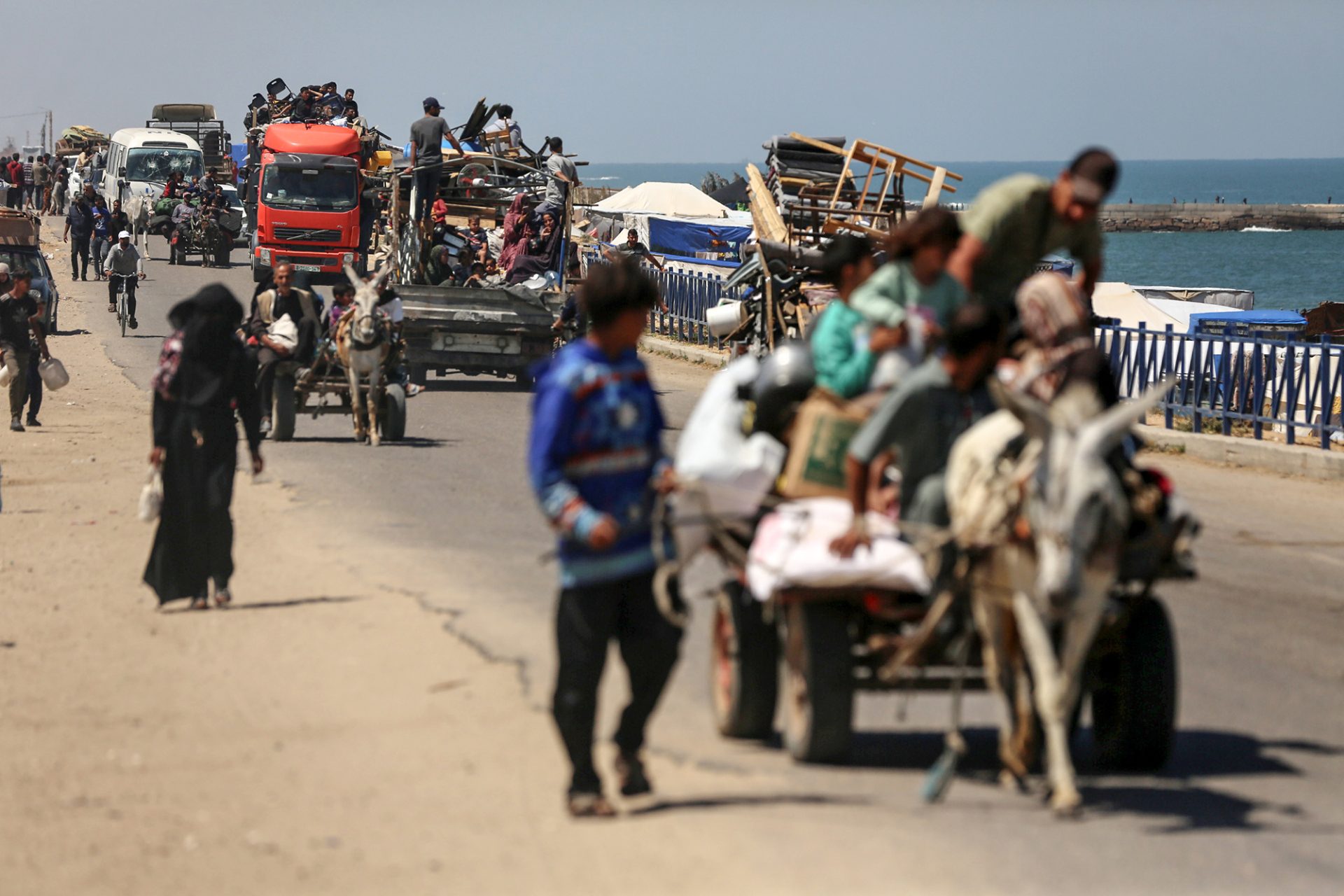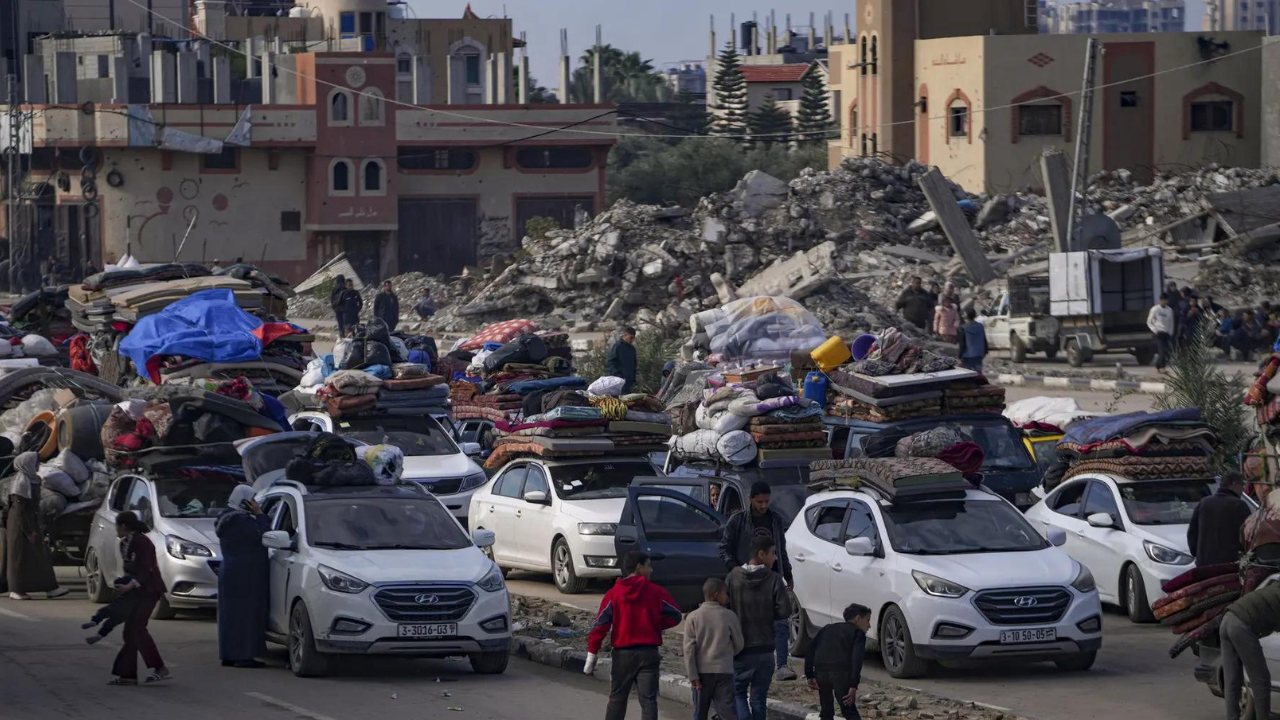ARTICLE AD BOX
The Israeli military is all but certain to miss a Sunday deadline to withdraw from southern Lebanon under a ceasefire deal that ended its war with Hezbollah two months ago.
Under the terms of the Israel-Hezbollah ceasefire that took effect on November 27, the Lebanese army is to deploy alongside United Nations peacekeepers in the south as the Israeli army withdraws over a 60-day period that ends on Sunday.
On Saturday, the Lebanese army said a delay in implementing the agreement was the "result of the procrastination in the withdrawal from the Israeli enemy's side".
Israeli forces have left coastal areas of southern Lebanon, but are still present in areas further east.
The deal stipulates that Hezbollah pull back its forces north of the Litani River -- about 30 kilometres (20 miles) from the border -- and dismantle any remaining military infrastructure in the south.
But Israeli Prime Minister Benjamin Netanyahu's office said on Friday that "the ceasefire agreement has not yet been fully enforced by the Lebanese state" and so the military's withdrawal would continue beyond the Sunday deadline.
"The withdrawal process is conditional upon the Lebanese army deploying in southern Lebanon and fully and effectively enforcing the agreement, with Hezbollah withdrawing beyond the Litani River," a statement from Netanyahu's office said.
It added that "the gradual withdrawal process will continue in full coordination with the United States", a key ally and one of the monitors of the ceasefire.
The Lebanese army said it was "ready to continue its deployment as soon as the Israeli enemy withdraws".
'Scorched Earth'
Hezbollah lawmaker Ali Fayad said on Saturday that Israel's "excuses" were a pretext to "pursue a scorched earth policy" in border areas that would make the return of displaced residents "impossible".
Lebanese President Joseph Aoun, who took office earlier this month, spoke on Saturday with his French counterpart Emmanuel Macron, whose government is also involved in overseeing the truce.
According to a statement from his office, Aoun spoke of the "need to oblige Israel to respect the terms of the deal in order to maintain stability in the south".
Aoun also said Israel must "end its successive violations, including the destruction of border villages... which would prevent the return of residents".
Macron's office, in its summary of the conversation, said the French president had called on all parties to the Lebanon ceasefire to honour their commitments as soon as possible.
The fragile ceasefire has generally held, even as the warring sides have repeatedly traded accusations of violating it.
The Israeli military has continued to carry out frequent strikes which it says targeted Hezbollah fighters, and Lebanese state media has reported that Israeli forces were carrying out demolitions in villages they control.
The November 27 deal ended two months of full-scale war which had followed months of low-intensity exchanges.
Hezbollah began trading cross-border fire with the Israeli army the day after the October 7, 2023 attack on Israel by its Palestinian ally Hamas which triggered the war in Gaza.
Israel intensified its campaign against Hezbollah in September, launching a series of devastating blows against the group's leadership and killing its longtime chief Hassan Nasrallah.
Hezbollah warned on Thursday that "any violation of the 60-day deadline will be considered a flagrant violation" of the ceasefire agreement and "an infringement on Lebanese sovereignty".
The group refrained from any threat to resume attacks on Israel but said the Lebanese state should use "all means necessary... to restore the land and wrest it from the clutches of the occupation".
(This story has not been edited by NDTV staff and is auto-generated from a syndicated feed.)
.png)
 21 hours ago
2
21 hours ago
2








 English (US)
English (US)